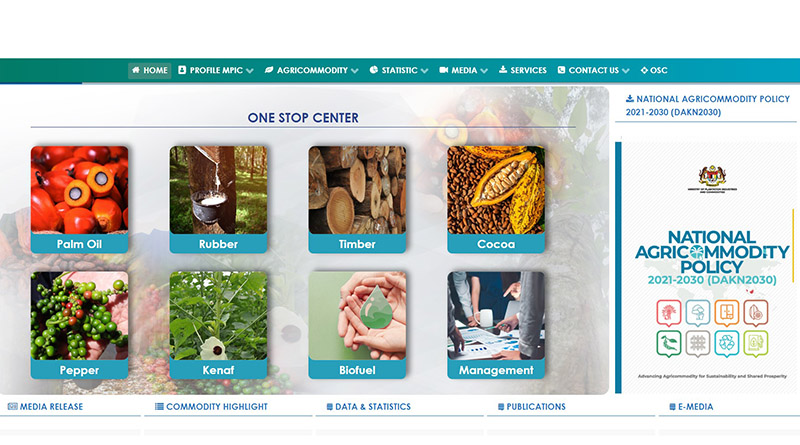The Minister of Plantation Industries and Commodities YB Datuk Hajah Zuraida Kamaruddin led the ministry’s (MPIC) delegation to chair the 10th Meeting of the Council of Palm Oil Producing Countries (CPOPC) together with the Coordinating Minister of Indonesian Economic Affairs, H.E. Airlangga Hartarto in Bali Indonesia.
The hybrid meeting was also attended by representatives of observer countries, including the Colombian Vice-Minister of Agricultural Affairs, H.E. Juan Gonzalo Botero, Honduran Minister of Agriculture and Livestock, H.E. Laura Suazo, and Secretary General of the Palm Oil Corporation (OPIC) Kepson Pupita, representing Papua New Guinea.
During the meeting, YB Datuk Hajah Zuraida Kamaruddin expressed her confidence that demand for palm oil will remain strong in 2022, though the economic sector and international borders, especially in the food sector, have been fully opened. In fact, there is optimism that palm oil producing countries have better controls and narratives to market palm oil globally.
YB Datuk Hajah Zuraida Kamaruddin also emphasized that this is the right time for palm oil producing countries in collaboration with strategic partners to explain and showcase the benefits and goodness of palm oil. In fact, joint efforts are needed to deliver a strong message, especially to the European Union (EU) and the United States.
She added that the EU and the United States need to give recognition to the sustainability agenda carried out by member countries, as well as stop all baseless accusations against palm oil products and the industry. CPOC will also play a major role in dealing with this matter as well as taking proactive steps in promoting the sustainability agenda and highlighting all efforts by Malaysia and Indonesia.
The meeting also took note of the increasingly limited supply of global vegetable oil due to ongoing geopolitical tensions, especially in the Ukraine conflict, which exacerbated the food crisis and resulted in high inflation worldwide. In fact, the meeting also took note of the possibility of biodiesel blending, as well as emphasis on the main market drivers for the rest of 2022.
The meeting also highlighted CPOPC’s plans to hold the G20 Sustainable Vegetable Oil Summit in November 2022. This program was implemented, among others, to formulate a strategy in dealing with the challenges of the global vegetable oil supply chain. The summit will also provide a discussion forum on key issues relevant to global vegetable oil production and trade such as market access, sustainability, labour issues, and smallholders.
The meeting also took note of the CPOPC’s plans to help Honduras rehabilitate oil palm plantations damaged by the typhoon in 2020. In this regard, CPOC member countries (Indonesia and Malaysia) will work with other stakeholders such as the Indonesian Oil Palm Research Institute (IOPRI), PT Sinar Mas, PT Sampoerna Agro, PTP Nusantara IV, PT Sarana Inti Pratama, and PT ASD-Bakrie to donate more than 80,000 oil palm seedlings to the country. Delivery will be made in the near future.
Indonesia and Malaysia also agreed to increase their biofuel mandates to B35 for Indonesia and B20 for Malaysia for domestic use respectively. Malaysia will also host the 11th Meeting of the Council of Palm Oil Producing Countries (CPOPC) by March 2023.
The Ministry through its agencies and councils will continue to play a role to ensure the country’s palm oil industry continues to be sustainable and strong to ensure the stability of the economic value of the palm oil sector, while continuing to look after the welfare of industry players and smallholders throughout the country.




